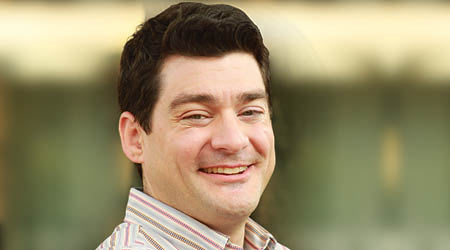
My son recently won his first state championship event in swimming. Of course, I was tingly all over since it was also my first time as the father of the fastest 10-year-old-100-yard-breaststroke boy in the state. As I reflected on the hours of practice he’s invested to be successful in his sport, my thoughts naturally kept coming back to the importance of staff training in a high performance green cleaning program.
Some of these thoughts were due to my experience with the Green Sports Alliance Greener Cleaning Playbook. If you haven’t already downloaded and read it, the Greener Cleaning Playbook contains guidance, tools and resources needed to plan and implement a successful green cleaning program. Staff training is emphasized as critical to such a program (as do many other standards and guides for green cleaning programs from Green Seal, ISSA, the Healthy Schools Campaign and others), but it’s an element that’s often overlooked or given little regular attention.
As any sports fan knows, practice makes for better and higher-performing athletes. The same can be said for staff on your team — investing in training will result in better and higher-performing cleaning staffs.
Let’s say you’re currently using a team cleaning system, which is comparable to team sports like baseball, football, soccer or basketball. Each player has a dedicated role, and they work together on offense or defense to score or prevent points. Middle linebackers and point guards translate to restroom and light duty specialists, only your team cleaning staff has more opportunity to rotate through positions to reduce boredom and maintain fairness.
If your staff is zone cleaning, sports such as swimming, track and wrestling are good analogies. Your individual performance is important in your lane or ring, but your individual scores contribute to the overall success of your team. The way a staff member cleans their zone certainly impacts the overall cleanliness of the building.
No matter the sport or cleaning program, one thing they all have in common is hours of practice. Sports practices can include repeating plays or movements over and over so they become fluid and familiar, trying out new gear and equipment to compare performance benefits, and watching game films to review past performance. Training for your cleaning staff can follow similar formats: practicing hands-on techniques to be more efficient and ergonomic, testing out new equipment and comparing results with the current model, or viewing online videos or industry periodicals to learn about new cleaning developments.
Athletes at the top of their game practice daily. Training your staff that often might be overkill. Instead, aim for at least two hours of ongoing training per month. Supporting your professional cleaning staff with ongoing training will similarly help them to better protect human health every day. Even Professor X built the Danger Room as a training center for the X-Men. I’m not saying training will turn all your staff into superheroes, but it might.
MARK PETRUZZI is Senior Vice President of Outreach and Strategic Relations with Green Seal. He’s in his third decade of striving for more sustainable purchasing and operations by using his engineering powers for good.

 Celebrating BSCAI's 60th Anniversary eBook
Celebrating BSCAI's 60th Anniversary eBook The Down and Dirty on Cleaning in Virus Season
The Down and Dirty on Cleaning in Virus Season How Surfactant Use is Expanding in Commercial Cleaning
How Surfactant Use is Expanding in Commercial Cleaning